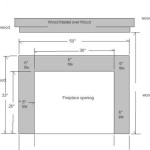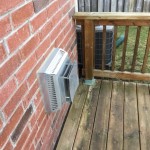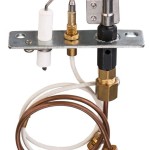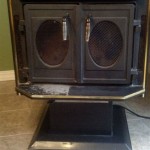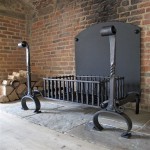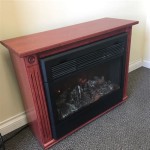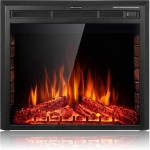Understanding Wood Stove Fireplaces
Wood stove fireplaces, often referred to simply as wood stoves, represent a distinct heating appliance differentiated from traditional open fireplaces. They offer a controlled combustion environment designed for greater efficiency and reduced emissions. These heating systems have evolved significantly over time, incorporating advanced technologies to improve performance and environmental compatibility.
The fundamental principle of a wood stove fireplace is controlled wood combustion within a closed firebox. This enclosure allows for regulation of airflow, leading to a more complete and efficient burn compared to an open fireplace. The resulting heat is then radiated and convected into the living space, providing a localized heating source.
Several factors contribute to the popularity of wood stove fireplaces. Beyond heating capabilities, they offer aesthetic appeal, evoking a sense of warmth and comfort. Furthermore, in areas with readily available and affordable wood resources, a wood stove fireplace can provide a cost-effective alternative to conventional heating systems like forced-air gas or electric furnaces.
Key Advantages of Wood Stove Fireplaces
Wood stove fireplaces present a multitude of advantages. Enhanced heating efficiency stands out as a primary benefit. Traditional open fireplaces often lose a significant portion of heat up the chimney, resulting in low overall efficiency. Wood stoves, on the other hand, are designed to maximize heat transfer into the room, boasting efficiencies ranging from 60% to 80% or higher, depending on the model.
The controlled combustion process leads to reduced fuel consumption. This not only saves money on firewood but also minimizes the environmental impact associated with wood burning. By regulating airflow and promoting complete combustion, wood stoves burn wood more cleanly and efficiently, extracting more heat from each log.
Another notable advantage is the capability for zone heating. Instead of heating an entire house, a wood stove can effectively heat a specific area or room, allowing for targeted temperature control and reduced energy waste. This makes them suitable for heating commonly used spaces like living rooms or family rooms.
Types of Wood Stove Fireplaces
The market offers a diverse range of wood stove fireplaces, each with unique characteristics and features. Categorizing them based on design and function provides a better understanding of their respective applications. Freestanding wood stoves represent the most common type, characterized by their independent structure and placement within a room. They can be positioned against a wall or in an open area, offering flexibility in installation.
Insert wood stoves are designed to be installed within an existing fireplace opening. This offers a retrofitting solution for homeowners looking to upgrade from an inefficient open fireplace to a more efficient wood-burning system. The insert essentially transforms the existing fireplace into a closed combustion appliance.
Pellet stoves represent a variation of the wood stove, utilizing compressed wood pellets as fuel. Pellets offer a consistent and predictable fuel source, and pellet stoves often incorporate automated feeding systems, providing greater control over the burning process. Pellet stoves typically achieve high heating efficiency and produce minimal emissions.
Catalytic and non-catalytic wood stoves represent another distinction based on combustion technology. Catalytic stoves employ a catalytic combustor to reduce emissions by burning off gases and smoke that would otherwise escape up the chimney. These stoves generally meet stringent emission standards. Non-catalytic stoves rely on advanced firebox designs and secondary air systems to achieve clean burning without the use of a catalytic combustor. Both types aim to minimize air pollution and improve combustion efficiency.
Installation and Safety Considerations
Proper installation is paramount for the safe and efficient operation of a wood stove fireplace. It is generally recommended to consult with a qualified professional for installation, ensuring compliance with local building codes and safety standards. The installation process typically involves connecting the stove to a chimney or flue system to safely vent combustion byproducts.
The chimney or flue must be appropriately sized and configured to provide adequate draft and prevent backdrafting of smoke and gases into the living space. Regular chimney inspections and cleaning are essential to remove creosote buildup, a flammable substance that can accumulate over time and pose a fire hazard.
Maintaining a safe distance between the wood stove and combustible materials is crucial. Manufacturers typically specify minimum clearance requirements, outlining the necessary space between the stove and walls, furniture, and other flammable items. Heat shields can be used to reduce clearance requirements in certain situations.
The use of a carbon monoxide detector is strongly recommended in homes with wood stove fireplaces. Carbon monoxide is a colorless, odorless gas that can be produced during incomplete combustion. A detector provides early warning of elevated carbon monoxide levels, allowing occupants to evacuate and address the source of the problem.
Selecting and storing firewood properly is essential for efficient and safe wood burning. Seasoned firewood, which has been air-dried for at least six months, burns more cleanly and efficiently than green or wet wood. Proper seasoning reduces moisture content, resulting in higher heat output and lower emissions. Firewood should be stored in a dry, well-ventilated area to prevent mold growth and rot.
Environmental Impact and Regulations
The environmental impact of wood stove fireplaces has become a subject of increasing scrutiny, leading to stricter regulations and standards. The primary concern revolves around particulate matter emissions, which can contribute to air pollution and respiratory problems. The Environmental Protection Agency (EPA) has established emission standards for wood stoves, aiming to reduce particulate matter released into the atmosphere.
Wood stoves certified to meet EPA emission standards are generally considered cleaner-burning and more environmentally friendly than older, non-certified models. These stoves incorporate advanced combustion technologies to minimize particulate matter emissions. Many local jurisdictions also have regulations regarding wood burning, particularly during periods of poor air quality. These regulations may restrict or prohibit wood burning during certain times to protect public health.
Sustainable forestry practices play a crucial role in mitigating the environmental impact of wood burning. Harvesting wood from sustainably managed forests ensures the long-term availability of wood resources while minimizing the ecological footprint. Sustainable forestry practices promote responsible forest management, protecting biodiversity and maintaining forest health.
Operating and Maintaining a Wood Stove Fireplace
Proper operation and maintenance are essential for maximizing the efficiency and lifespan of a wood stove fireplace. Starting a fire efficiently involves using appropriate kindling and gradually adding larger pieces of wood. Top-down firing, where the fire is started at the top of the wood pile, can promote cleaner burning and reduce smoke emissions.
Maintaining a consistent fire temperature is important for efficient combustion. Overloading the firebox with wood can lead to incomplete combustion and increased smoke production. Conversely, allowing the fire to burn too low can result in creosote buildup in the chimney. Adjusting the air controls to regulate airflow ensures optimal combustion.
Regular cleaning of the firebox and ash removal are necessary for maintaining efficient operation. Ash buildup can reduce airflow and hinder combustion. The frequency of ash removal depends on the type of wood burned and the stove's usage patterns.
Inspecting the door gasket and chimney connections is crucial for preventing air leaks. Air leaks can compromise the stove's efficiency and potentially allow smoke and gases to escape into the living space. Replacing worn or damaged gaskets and tightening loose connections ensures an airtight seal.
Troubleshooting Common Issues
Several issues can arise with wood stove fireplaces, requiring troubleshooting and resolution. Difficulty starting a fire can be caused by damp firewood, insufficient kindling, or inadequate draft. Ensuring the firewood is seasoned and using appropriate kindling can resolve this issue. Checking the chimney for obstructions and ensuring proper damper operation can improve draft.
Excessive smoke production can indicate incomplete combustion. Common causes include unseasoned firewood, overfilling the firebox, or insufficient airflow. Using seasoned firewood, adjusting the air controls, and ensuring the chimney is clean can reduce smoke emissions.
Backdrafting of smoke into the living space is a potentially dangerous situation. It can be caused by negative pressure in the house, a blocked chimney, or a downdraft due to unfavorable weather conditions. Opening a window slightly can relieve negative pressure, and having the chimney inspected and cleaned can address obstructions. Addressing downdrafts may require professional consultation.
Creosote buildup in the chimney is a common concern that can lead to chimney fires. Regular chimney inspections and cleaning are essential for preventing creosote accumulation. Burning seasoned firewood at appropriate temperatures minimizes creosote formation.

Freestanding Wood Burning Stoves Sierra Hearth And Home

Wood Burning S Hearthstone Stoves Vermont

Wood Stoves Vs Fireplaces Burning Hearth S

F2450 Non Catalytic Wood Stoves Burning By Regency

Can You Install A Wood Stove In Fireplace Direct Stoves

Wood Burning Stoves In Milton Keynes Inspirations

What Is A Freestanding Wood Stove Fireplace Service Experts

Summertime Deals On Fireplaces Stoves Inserts And Linear

How To Buy A Wood Stove Buyer S Guide From Regency

Fireplace Vs Stoves Pros Cons Dc Service
Related Posts

